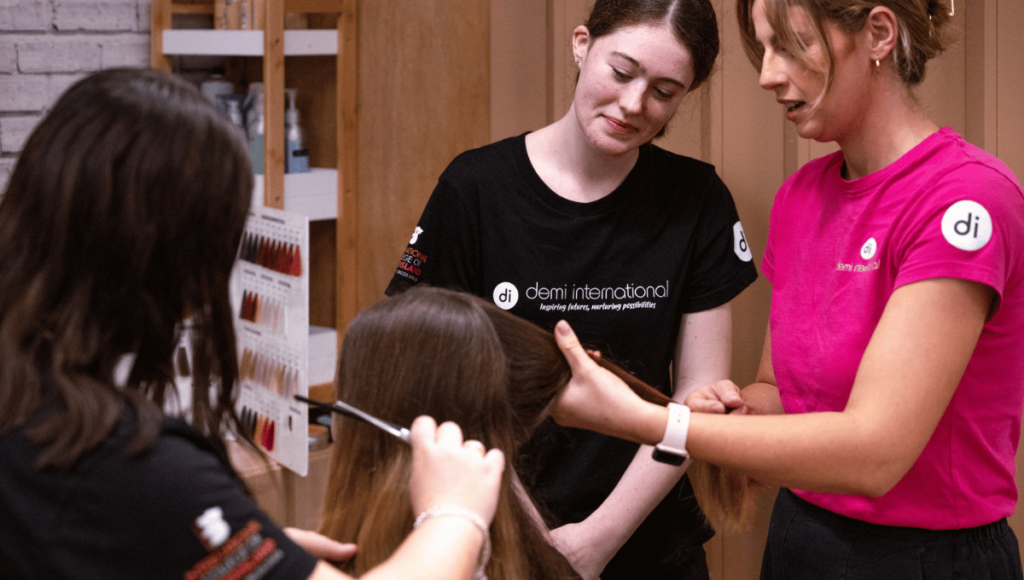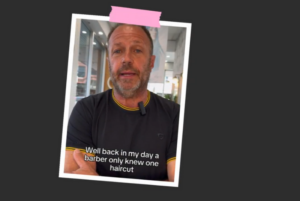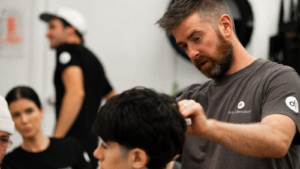For some aspiring beauticians, hairdressing as a profession has always been a popular choice.
And no wonder — it can be a very financially rewarding career , while also being a satisfying outlet for creativity.
What does a hairdresser even do?
Fully qualified hairdressers are expected to be ‘hair experts’. They cut, perm, treat, straighten, colour, blow-dry, maintain, and style hair as per customer’s requests.
For many, becoming a hairdresser is the perfect career., The combination of the workplace environment and individual personalities often leads to a very fulfilling day-to-day work life.
If you want to become a hairdresser, here are 7 things you need to know:
Have a passion for the industry.
Choosing any beauty profession requires a passion for looking good, feeling good and wellbeing.
You’ll need to keep up to date on the latest trends (and be able to create these).
Presentation is key and physical appearance matters, especially when you’re in the beauty business. You’ll be expressing the latest fashion trends, beauty trends and popular looks as part of your everyday job, inspiring your clients to look and feel their best too.
You’ll be expected to be friendly and conversational.
Salons are very social places. You’re likely to meet all kinds of people from different walks of life, and most of the time these situations will require you to be sociable and participate in different conversations.
Your customers will trust you more than anyone else.
Aside from doctors, many people place more trust in their hairstylists over anyone else.
For a number of individuals, going out with a bad hairstyle is like being in public in your underwear!
And not only that; you’ll also have clients that will use their sessions as a way to vent and share the most intimate details of their lives.
Developing your listening skills and having a caring and compassionate attitude goes with the job!
The ability to use your hands and fingers well.
Practice makes perfect and you will develop great skills with your hands the more hair you do. Dexterity and the ability to work under intense pressure is a must.
You’ll be cutting, colouring and styling hair to a tight time-line. A skill you will continue to develop through your training.
Flexible and strong fingers and wrists will help you to succeed.
Eventually, you will totally trust your hands to do the perfect job.
Be prepared to be on your feet most of the day.
On an average workday, you’re probably going to be standing and walking the whole time — especially if you work in a busy area.
You’ll require a lot of stamina and energy to keep you going.
Having a good exercise routine will really help you keep the strength in your core muscles and will help you maintain great posture during your working day, with little effort.
Yoga and Pilates are a great choice!
Hairdressers are in high demand.
There is always a consistent demand for hairstylists and therefore plenty of employment opportunities.
Everyone needs their hair cut!
It’s possible to have the freedom to be able to work almost anywhere.
The opportunities are endless: business owner, salon manager, fashion, brides, freelance, mobile, salon stylist or specialist in colour, cutting, styling.
It requires little education, but a lot of hands-on training.
To be a fully certified hairdresser, you need to go to a training school.
In training, you will learn all the foundation skills you need, that despite the recent trends don’t change much over-time.
From there you will build on your skills adding in the lastest hairstyling techniques, new tools, latest products.
You’ learn how products work and how best to take really great care of your client’s hair.
You’ll also learn about running a salon and operating a business as well as how to retail products to your clients to give them the best service possible.
Next Steps
Now that you know these, are you ready to begin your first steps to becoming a hairstylist?
At Demi International Hair Academy, we offer a Certificate III in Hairdressing. Call us to find out more!







